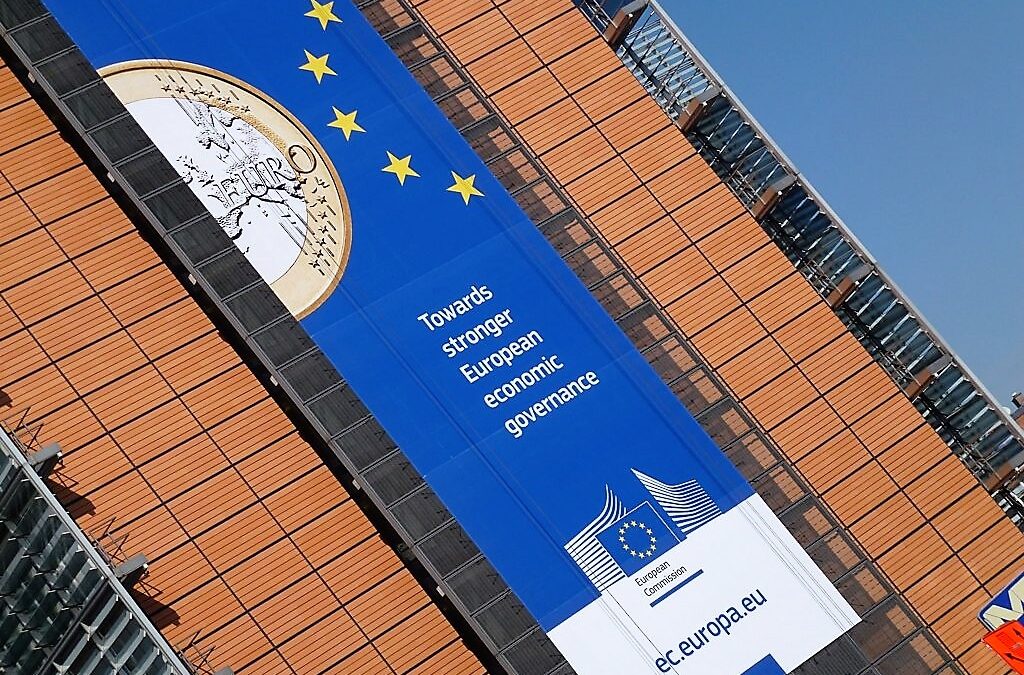The Polish government has submitted a request to the European Commission asking it to stop levying fines of €1 million per day over Poland’s failure to comply with a European Court of Justice (ECJ) ruling regarding its judiciary.
Warsaw argues that the fines – which have been levied since last November and amount to €366 million (1.7 billion zloty) so far – should be withdrawn because Poland has complied with the requirement to close down its disciplinary chamber for judges.
However, analysts note that the ECJ’s ruling was broader than just closing down the chamber and that, in any case, it is not the European Commission but the ECJ itself which decides when the fines should stop.
The ruling in question was made in July 2021, when the ECJ ordered the disciplinary chamber to be suspended because its “independence may not be guaranteed” and its continued functioning “may cause serious and irreversible damage to the EU legal order”.
However, the chamber continued to function in defiance of the order and so, in October, the ECJ imposed the €1 million daily fines, which started to be levied from 3 November 2021. The European Commission then enforced the fines, taking them out of Poland’s EU funds.
Eventually, one year after the original ECJ ruling, Poland did close down the disciplinary chamber, immediately replacing it with a new “chamber of professional responsibility” tasked with holding judges to account.
Poland today closed down the judicial disciplinary chamber at the heart of its dispute with the EU.
The government hopes that will pave the way for the release of billions in frozen EU funds, but the opposition claims it is only a superficial change https://t.co/wcS8mM6Ole
— Notes from Poland 🇵🇱 (@notesfrompoland) July 15, 2022
Nevertheless, the European Commission has continued to levy the €1 million daily fines on Poland. Today, Szymon Szynkowski vel Sęk, who last month became Poland’s new minister for EU affairs, said the government yesterday submitted a request to the commission to end the fines.
It contains “rich argumentation pointing to new legal circumstances” created by the dissolution of the disciplinary chamber in July, said the minister, quoted by the Polish Press Agency (PAP). The government therefore believes that the fines should be suspended from the moment that happened.
However, Jakub Jaraczewski, a rule-of-law expert at Democracy Reporting International, notes that the commission merely enforces fines, and it is the ECJ which decides that they should be levied.
🇵🇱⚖️🇪🇺💶Here we go, Poland requests the Commission to cease collecting the 1m EUR/day penalty over disregarding a CJEU interim measure. Yesterday, the Polish government indicated that if this "nice" request doesn't work, they will sue the Commission before CJEU. 1/ https://t.co/6IvfN1YSkR
— Jakub Jaraczewski (@J_Jaraczewski) November 4, 2022
Commission spokesman Christian Wigand confirmed today they had received Poland’s request. But he added that “the commission is required to continue…the imposition of fines imposed by the Court of Justice until Poland fully complies with the court’s ruling. Until then, Poland will continue to pay the penalty”.
Yesterday, anonymous government sources told broadcaster RMF that they would submit the request to the commission as a first step, after which – if there was not a positive response – a complaint would be filed to the ECJ.
Commission sources, meanwhile, told the Gazeta Wyborcza daily that for weeks they have been telling the Polish government that it needs to go directly to the ECJ if it wants the fines lifted.
Legal experts have noted that closing the disciplinary chamber does not in itself bring Poland into compliance with the ECJ’s July 2021 ruling, which also contained a number of other requirements.
The European Commission has informed the Polish side that, while the dissolution of the chamber “is a step in the right direction”, Poland still must meet the other stipulations, such as suspending the effects of decisions previously issued by the chamber to lift judges’ immunity from prosecution, reports RMF.
Wigand said today that, after receiving a previous letter from Poland in July regarding ending the fines, “we assessed at that time that, although we saw progress on certain specific issues, not all obligations resulting from the [ECJ] judgment have been fully incorporated into the new law”, reports PAP.
Meanwhile, Polish opposition parties have argued that the new chamber of professional responsibility created in July is simply the disciplinary chamber under a different name, without full independence from the legislative and executive branches and with continued powers to impinge on judicial independence.
The dispute is part of a broader and longer-term conflict between Warsaw and Brussels over the rule of law, which, as well as the daily fines, has seen the commission freeze billions of euros in EU funds for Poland.
The two sides have agreed a series of “milestones” in order to unlock part of those funds, including Poland having to take steps to strengthen the independence of judges.
In July, commission chief Ursula von der Leyen said that the law reforming Poland’s disciplinary regime for judges does not meet all of the EU’s requirements. She repeated those remarks in September, leading Poland’s ruling party to accuse her of seeking to meddle in domestic affairs for political reasons.
Main image credit: Gideon Benari/Flickr (under CC BY 2.0)

Daniel Tilles is editor-in-chief of Notes from Poland. He has written on Polish affairs for a wide range of publications, including Foreign Policy, POLITICO Europe, EUobserver and Dziennik Gazeta Prawna.




















